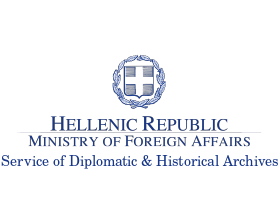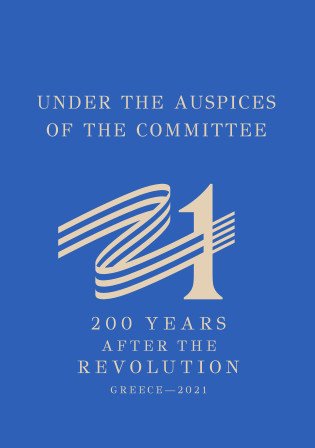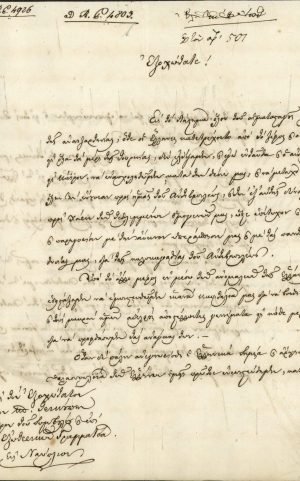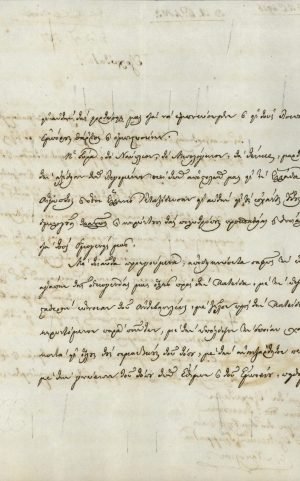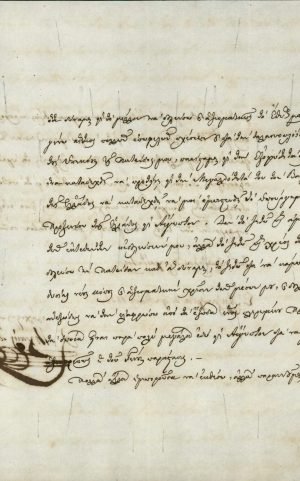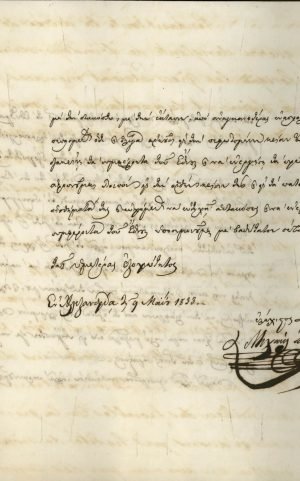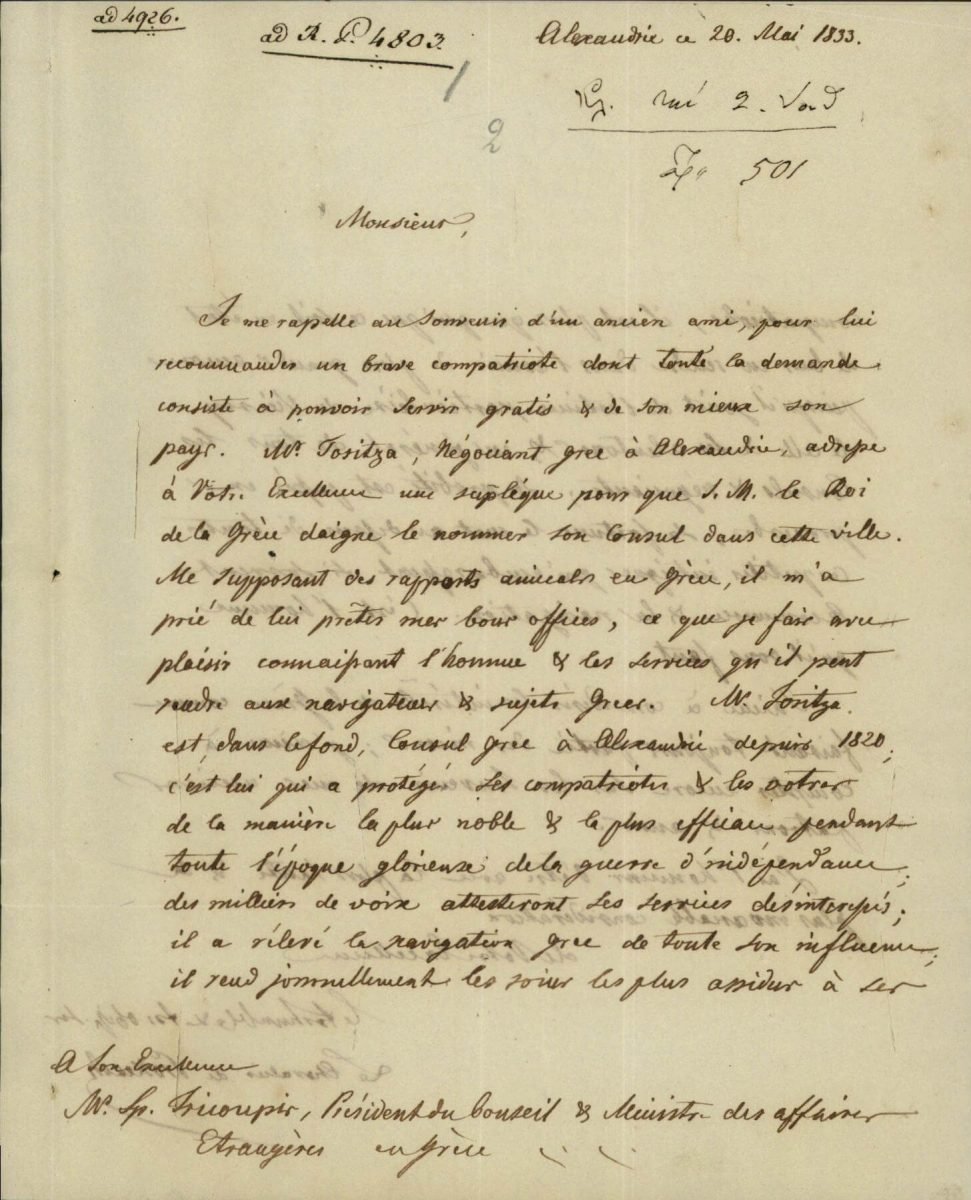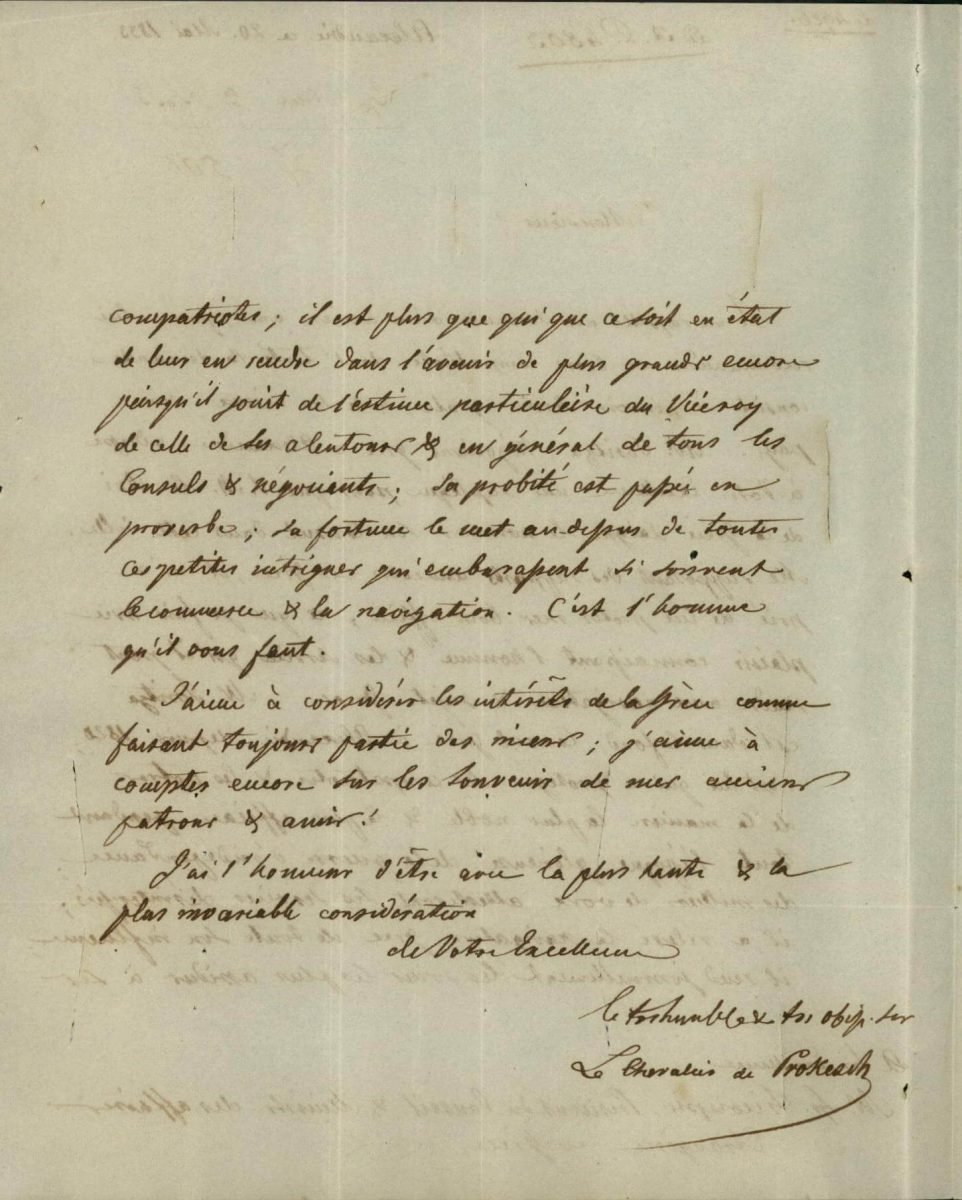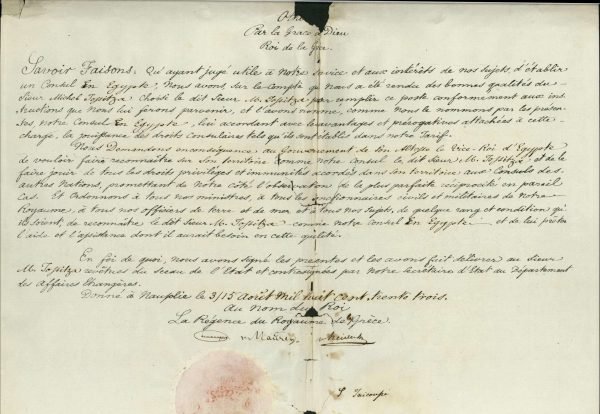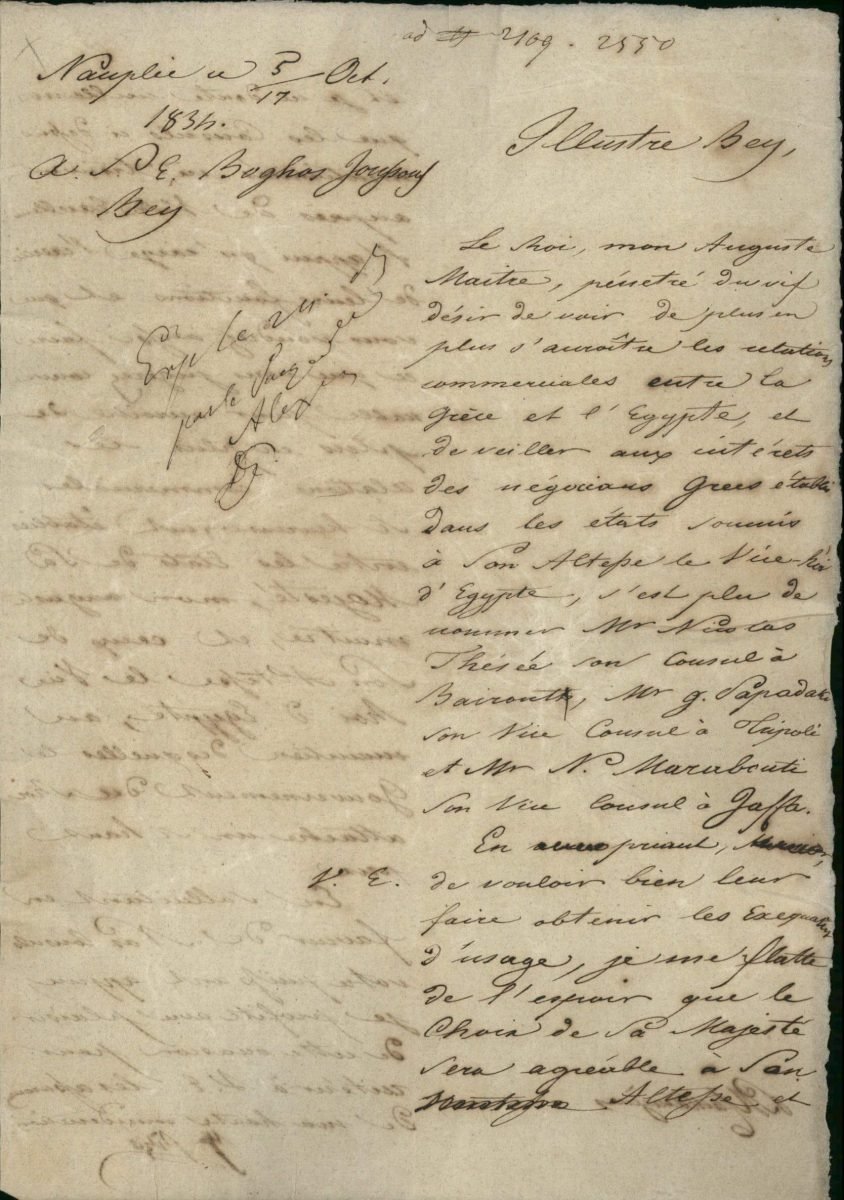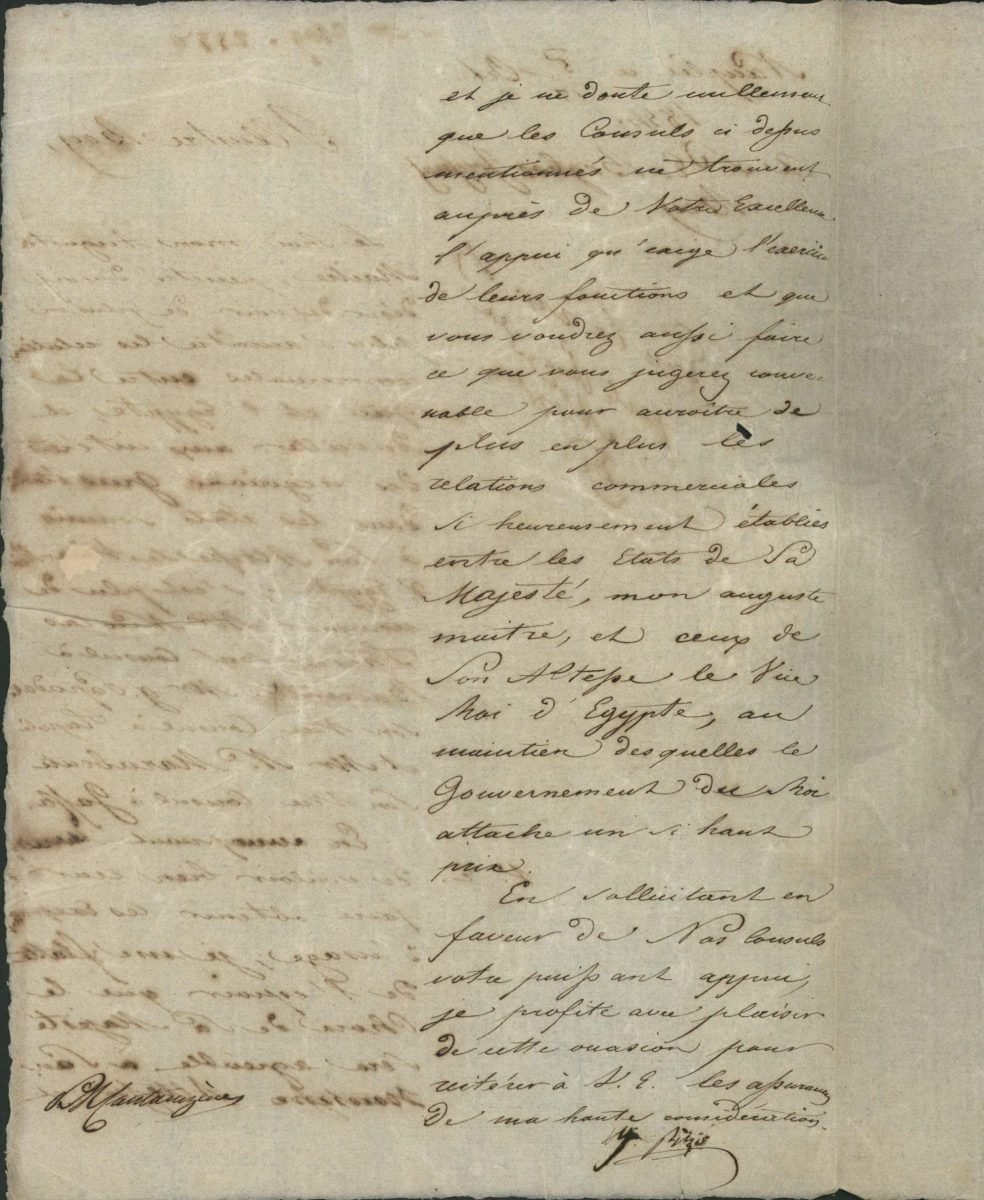9[21] May 1833. Request by Michael Tositza to the Regency to be appointed Consul of Greece without any remuneration. Tositza was a merchant from Metsovo, who had settled in Alexandria in 1820 and later became a great national benefactor. Throughout the Struggle for Independence in Greece, he helped the Greeks of the region and all of Egypt. In his letter to the Regency, he notes that he does not request the position as a reward for his previous services, but as an obligation to his homeland, so that he can make “new sacrifices, new efforts” and use his means in the best way, relieving the State from the cost of a career Consul, which should be high if the country wished to be represented with dignity.
[8]20 May 1833. Count Anton Prokesch von Osten, who later became the first Ambassador of Austria in Greece and was a great philhellene, during a diplomatic mission to Alexandria, sends a letter to Greek Minister of Foreign Affairs Spyridon Trikoupis, an old acquaintance of his (from the period of the Revolution when the Austrian was in Greece to assist the Struggle for Independence), in order to recommend Michael Tositza as the most suitable person to be appointed Consul of Greece in Alexandria. As he says, Tositza had “actually” already been acting as a Consul as early as 1820, when he settled in the area, protecting the Greeks there during the Revolution.
5/17 October 1834. Copy of a letter, in which Greek Minister of Foreign Affairs Iakovos Rizos-Neroulos informs Minister of Foreign Affairs of Egypt Boghos Yousef Bey that Greece appoints Nikolaos Thiseas as Consul in Beirut (in present-day Lebanon), G. Papadakis as Vice-Consul in Tripoli (in present-day Libya) and N. Maraboutis as Vice-Consul in Jaffa (ancient Joppa, in present-day Israel).
